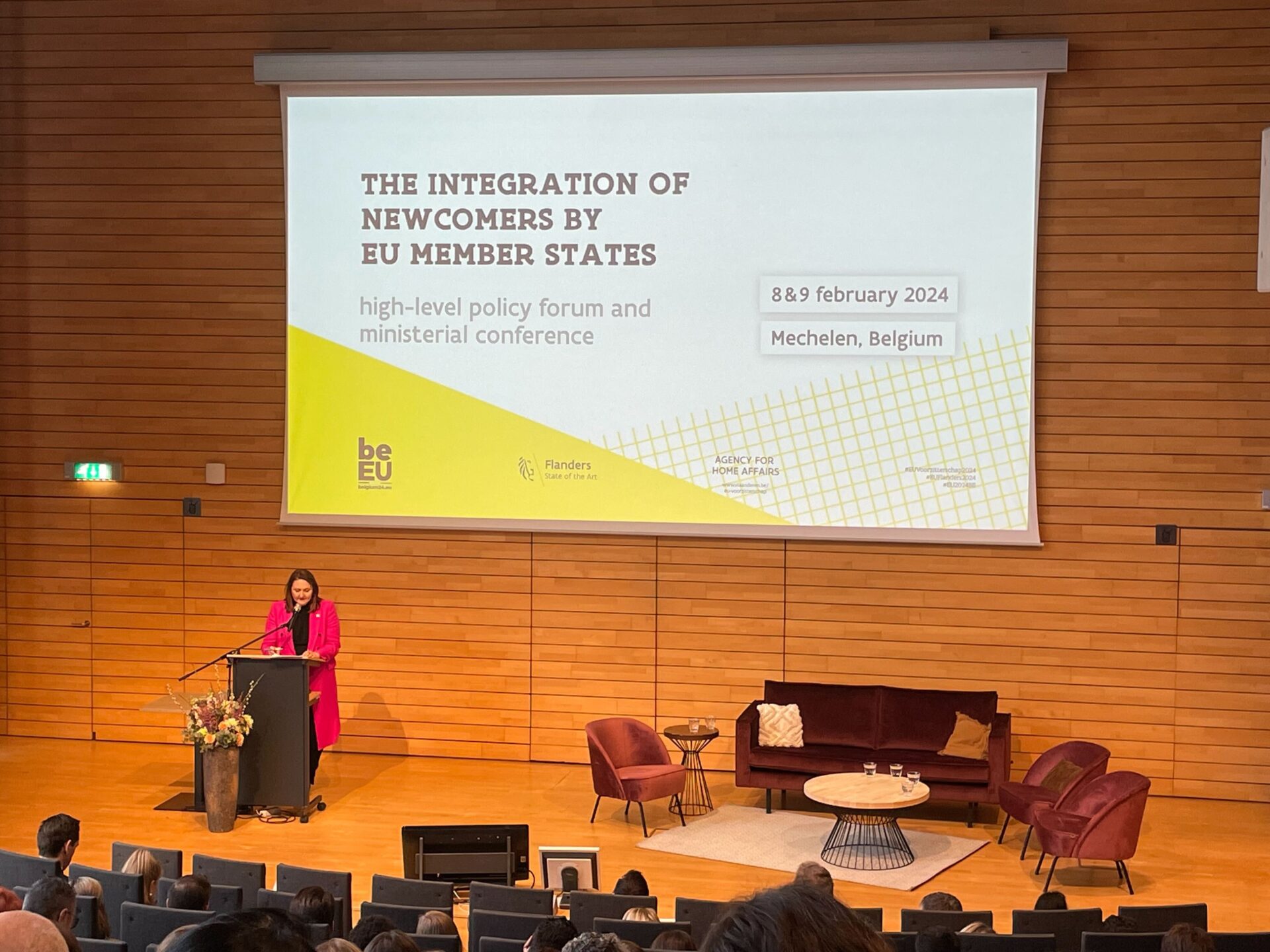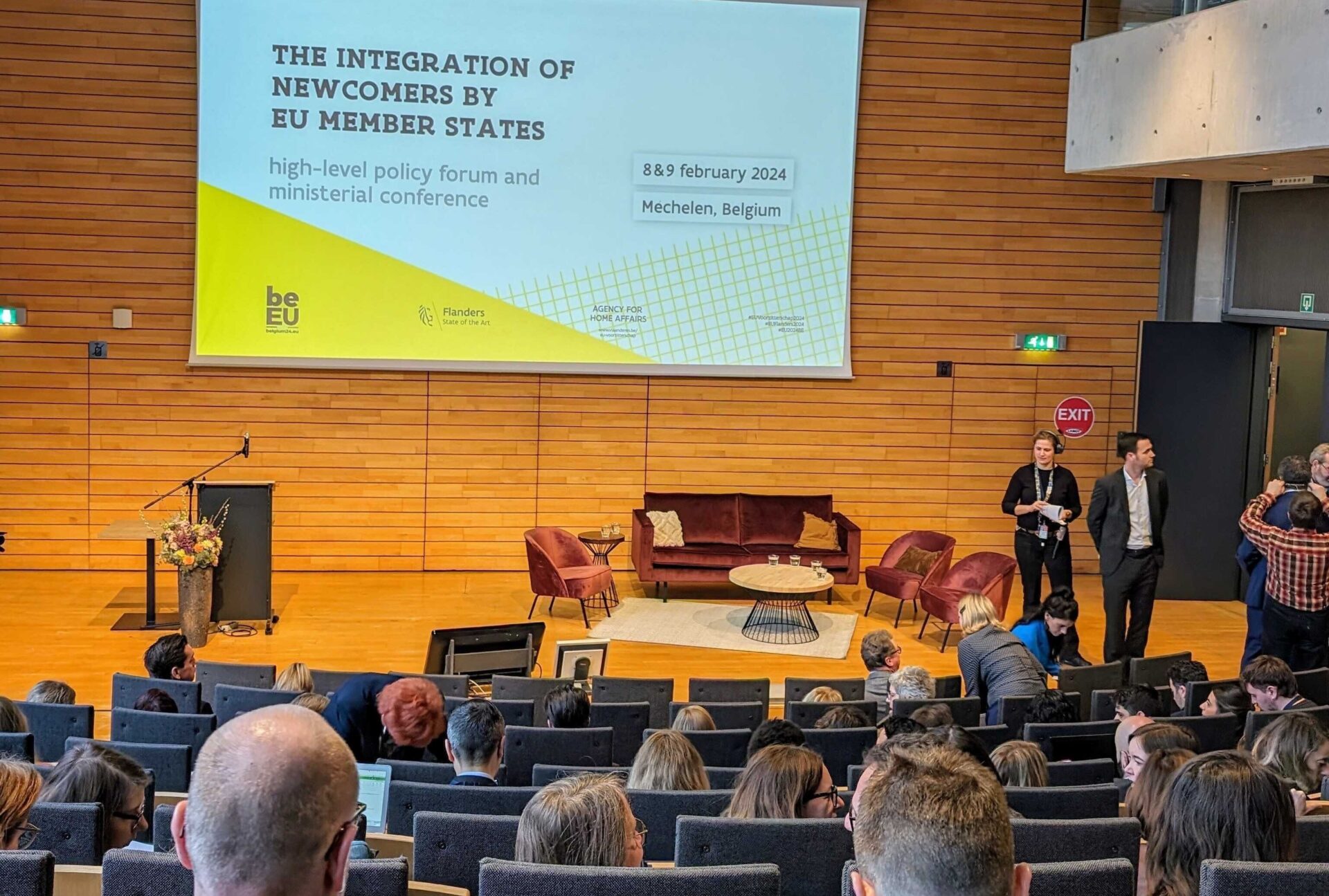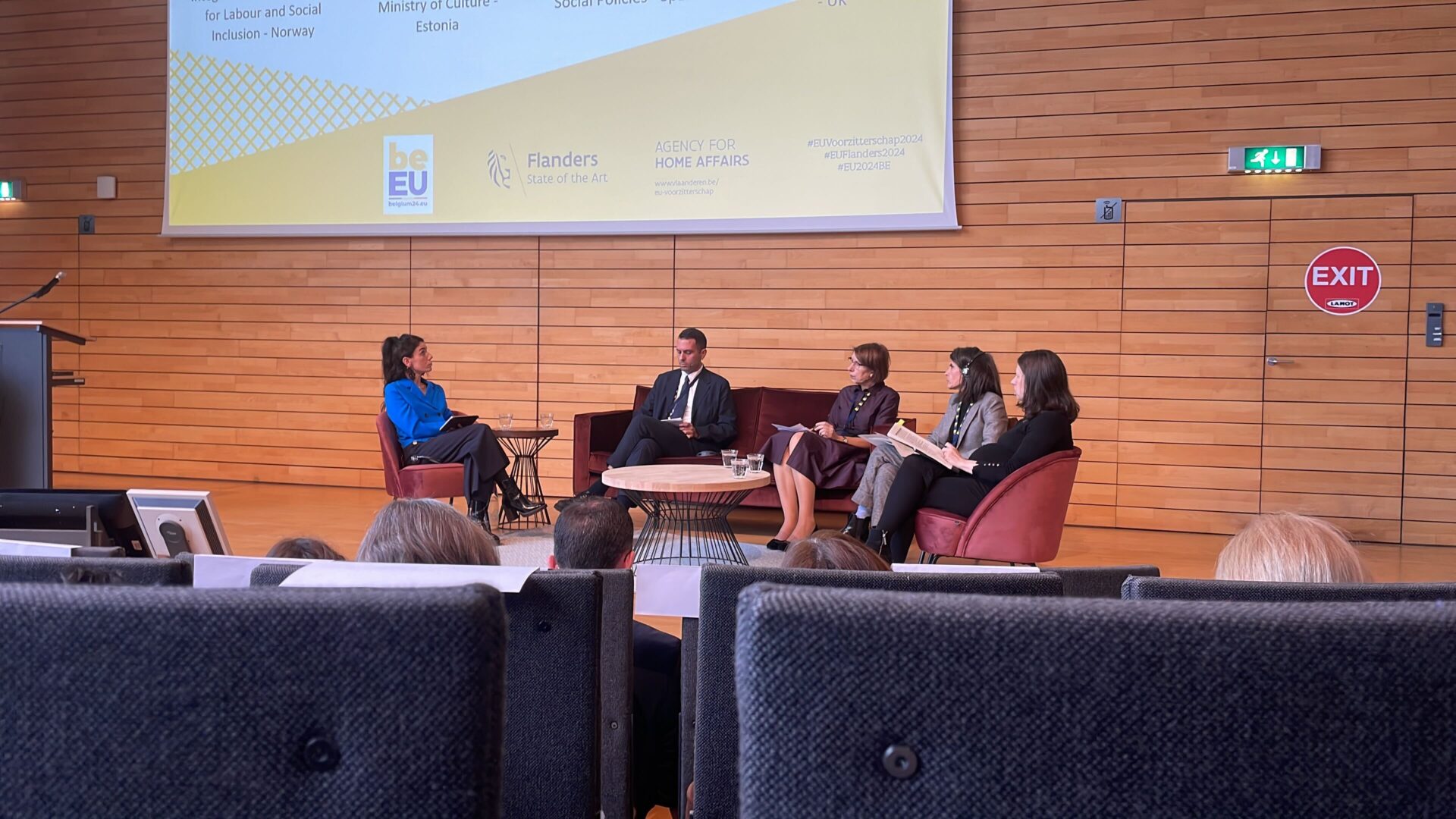SINGA in Brussels, shaping the future of inclusion policies in Europe (and beyond)

Months away from the European elections, SINGA was invited by the IGC to the High-Level Policy Forum and Ministerial Conference on the integration of newcomers by EU member states on February 8 and 9. This event brought together policymakers, experts, heads of delegations, ministers and other stakeholders to chart the course for more inclusive societies and to shape the future of integration policies in Europe and beyond.
Networking and Sharing Best Practices
Organized by the Belgian Presidency of the Council of the European Union, this two-day meeting aimed to gather insights, to exchange best practices, and to determine the priorities for future policy agendas. Fatemeh Jailani, Chief Operating Officer at SINGA Global, and Myriam Nouicer, Communications Director at SINGA Global, were invited to share their experience and present the data collected within the SINGA network on inclusion: experiments, impact figures, testimonials, lessons learned… This was also an opportunity to hear from member states and international organizations (OECD, IMO, UNHCR) on their respective journeys and on the opportunities and challenges they have observed. From professional inclusion to language acquisition, social networking and psychosocial wellbeing, the forum addressed a wide variety of crucial issues in newcomers’ inclusion in their host societies.
Towards More Humane and Inclusive Migration Policies
In a context where migration issues remain at the heart of political debates in Europe, the event in which SINGA participated is of particular importance. From France to Germany, Italy to the Netherlands, polarizing narratives on migration have gained influence over the course of 2023. And as the number of displaced people continues to rise, with persistent challenges over access to asylum, this event highlighted the urgency of adopting more inclusive and sustainable migration policies.
The discussions also explored more open and innovative approaches to migration. Often confined to short-term perspectives, discourses on migration tend to neglect a global vision of inclusion and sustainable solutions. SINGA thus insists on the need to consider migration as a structural reality that brings opportunities, and not just as a succession of crises to be managed. By focusing on long-term strategies, policymakers can create environments where newcomers are not only welcomed, but actively supported in their inclusion within host communities, to the benefit of all.
It is, therefore, encouraging to see the traction that inclusion is gaining given its importance to constructive and long-term migration governance solutions and to ensuring cohesive societies fundamental to healthy democracies!
آخر الأخبار في
SINGA فَرَنسا

Mois des Buddies : célébrer les rencontres et la diversité à SINGA Bruxelles

Unity or Division: The EU’s High-Stakes Stance on Migration in a Trump-Led Era



